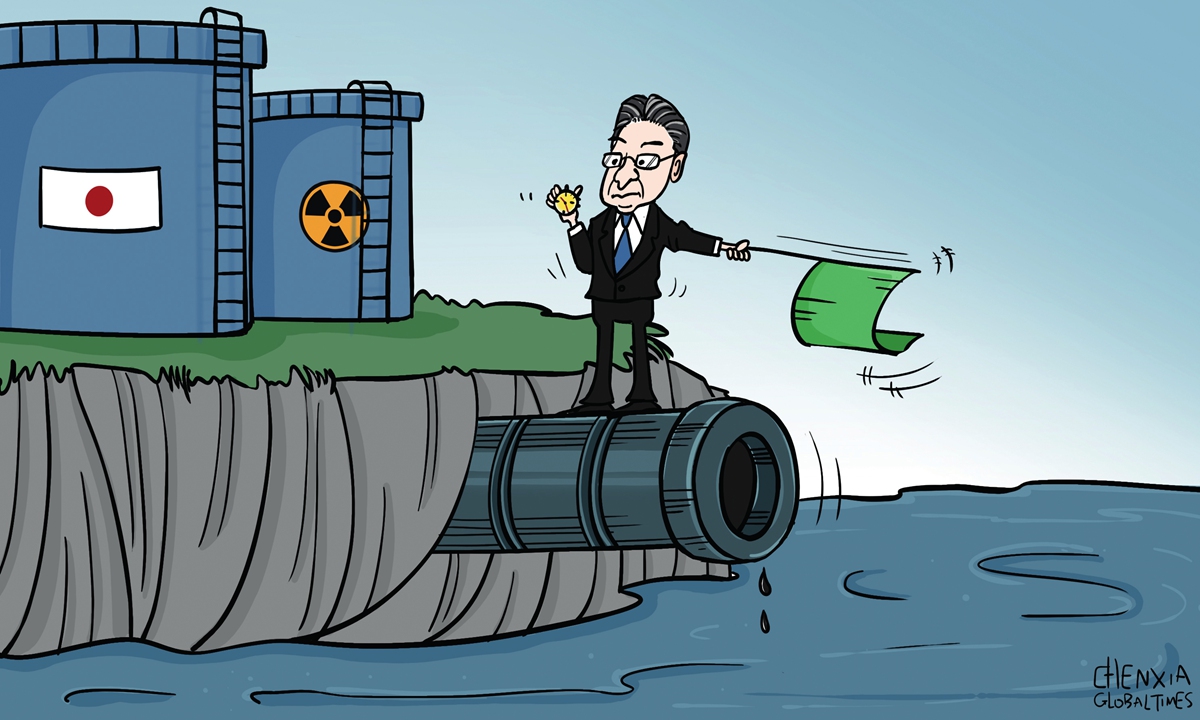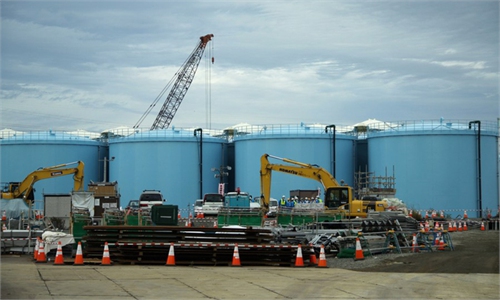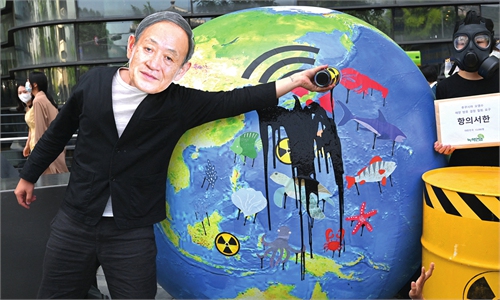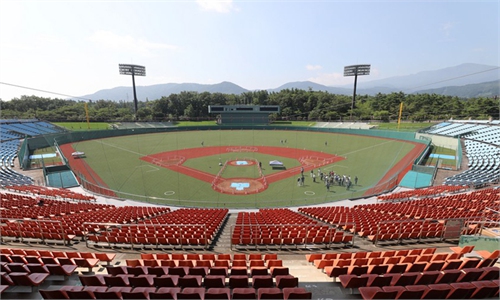
Illustration: Chen Xia/GT
With the connivance and even encouragement of the US and the West, Japan has decided to dump the contaminated radioactive wastewater from the Fukushima Daiichi nuclear plant into the sea, for the sake of its own selfish interests. Such anti-human actions of Japan, a US ally, have long been condoned by Washington. This being the case, the administration of new Japanese prime minister Fumio Kishida has unsurprisingly inherited such a selfish policy.Despite opposition from Japanese fishermen and Japan's neighboring countries, Kishida has said there can be no delay to plans to dump nuclear wastewater into the sea. "I felt strongly that the water issue is a crucial one that should not be pushed back," he said after his first trip to the wrecked Fukushima Daiichi nuclear plant as the Japanese prime minister.
This shows that Kishida has completely inherited the irresponsible nuclear wastewater policy of former Japanese prime minister Shinzo Abe. As early as 2019, then Japanese environment minister Yoshiaki Harada said that to "release it into the ocean and dilute it" is the only solution.
Kishida and his predecessor, former Japanese prime minister Yoshihide Suga, have both followed such a decision to maintain the continuity of the Japanese government's policy, and to grasp the bargaining chip in the diplomatic games with China and South Korea.
But in addition to dumping the nuclear-contaminated wastewater into the sea, is there really no other option for Japan? In a previous interview with Global Times, Shaun Bernie, senior nuclear specialist of Greenpeace East Asia, said, "It is not inevitable that the contaminated water will be dumped into the Pacific Ocean… The deadline is artificial as there is sufficient storage space on the Fukushima Daiichi site for additional tanks."
Obviously, Japan could have considered other alternatives. But it has chosen the easiest, the most irresponsible and the most harmful way to all human beings.
Unsurprisingly, mainstream Western media has generally turned a blind eye to Japan's decision. No major Western media outlets have criticized Kishida's selfish decision as they did to countries that don't belong to the US' ideological camp.
"The US wants to morally support Japan as an ally, trying to demonstrate the stability and reliability of US-Japan relations. The US may believe that, due to the geographical distance, the nuclear wastewater may not impact itself," Da Zhigang, director of Institute of Northeast Asian Studies at Heilongjiang Provincial Academy of Social Sciences, told the Global Times.
Japan's irresponsible and selfish national image will be further confirmed and perpetuated if the nuclear wastewater is eventually discharged into the Pacific Ocean. People from Japan's neighboring countries such as China and South Korea may spontaneously boycott Japanese sea products. Wang Hanling, a professor at the Institute of International Law of the Chinese Academy of Social Sciences, pointed out that relevant individuals and companies in Japan could face sanctions, including the Tokyo Electric Power Company.
Once the radioactive water is dumped, the Japanese government is very likely to lose its say in maritime cooperation - an important part of Japan's maritime strategy.
"When it comes to future maritime cooperation, some countries may think: If Japan is not even responsible for its own nuclear wastewater, how can it be responsible on related cooperation with others?" Da said.
Kishida is destroying the future of humanity for selfish political considerations, and the US has acted as an accomplice of Japan. The consequence of this man-made disaster should never be borne by all mankind.



